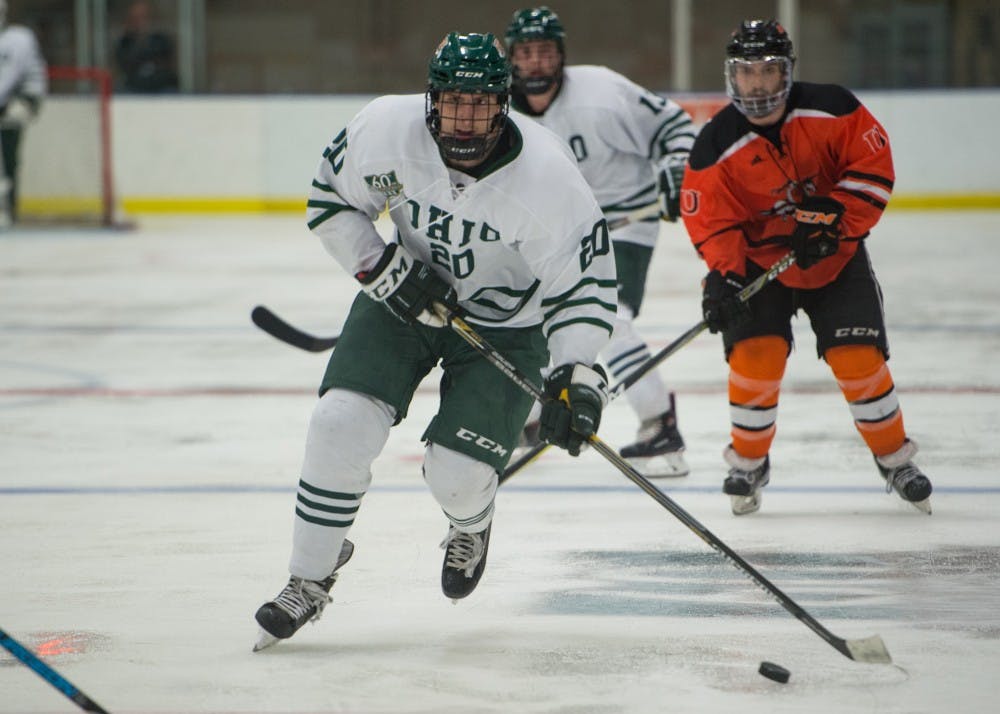It was 5 a.m. and the sound of my alarm had just gone off. I was sluggish, but managed to get out of bed and made my way to Tiffin Hall, where I met fellow hockey beat writer Anthony Poisal.
We had a job to accomplish — produce the best content we could about Ohio’s road trip to Navy.
Outside of Bird Arena, a bus with the name “Fun Bus” was parked outside of the arena and was loaded up with gear, technological equipment and of course the team along with myself and Anthony.
Guys were riled up, the excitement of hitting the road for the first time this season was apparent – Anthony and I included. Yet, we remained reserved. After all, it was stressed to us and we stressed it to each other; we don’t work for the team.
Objectivity in a situation like this is key. Had the Bobcats lost, we would have had to write about why they lost as we sat on the bus with them. We couldn’t go home after the post-game interviews because home was 380 miles away.
In the days of old, this is how journalism was performed. Our predecessors traveled on buses with notebooks, pens and tape recorders chasing the stories that the audience desired.
It was needed then, and maybe it’s needed now.
On this trip, the only people we had to talk to was the team, the coaches and the athletic trainer, otherwise known as sources. Sources yes, but not every conversation was for a story.
Often I think that as journalists, we tend to forget our sources are in fact human too. I had normal day-to-day conversations with the likes of Jake Faiella, Matt Rudin and Shawn Baird. Not that an interview isn’t normal for this line of work, it’s probably not as normal than just a casual conversation.
Sitting on a bus going from point A to point B and then C, D and back to A, you have a lot of time to think. Not only about the task at hand, but about life itself.
On this trip, the importance of journalism struck me. Every day, I (along with countless others) have the opportunity to tell peoples' stories — both good and bad. And while, sure, citizen journalism is more rampant than ever and in the realm of sports, teams have their own media staffs, there is something to be said about a classically trained journalist.
Anthony and I have already told the stories of numerous people within the hockey program including the new members on the team, Jake Jakuszeit (the PA man at Bird) and Ohio’s senior class, just to name a few.
We wouldn’t be in this situation that we are in had journalism and journalists not exist. Today’s world needs journalism and real journalists more than it’s ever needed before. Whether it’s politics, culture, going-ons, sports, etc., as long as there is news in some way, shape or form, the world will need us.
They may not accept us, they may not like what we report, but we aren’t here to please the masses. We are here to inform the masses.
What we do is important and what we do is needed to advance as a society.
When I went to Annapolis, Maryland, all I was "supposed" to do was write two game stories. Yet, when I went to Annapolis, I left with a sense of pride, purpose and focus. Pride, for those journalists who have come before me. Purpose, for this is what I am supposed to do. Focus, for this is what it takes to be successful.
All it took for me to understand all of this was to take a simple road trip with a club hockey team.






